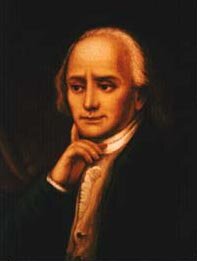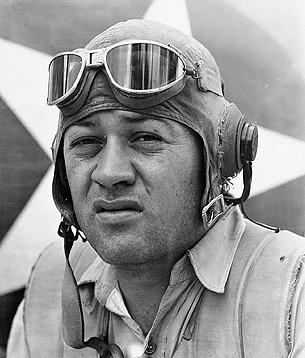January 11

1757 Birth: Founding Father and first Secretary of the US Treasury, the brilliant Alexander Hamilton, in the West Indies.



1813 The first pineapples are planted in Hawaii.
1814 Joachim Murat, King of Naples, ends his association with Napoleon and enters into an alliance with the Austrians.
1815 Birth: Sir John Alexander MacDonald, 1st Prime Minister of Canada.
1839 Birth: Eugenio De Hostos, Puerto Rican patriot, scholar, author of more than fifty books.

1843 Death: Francis Scott Key, author of the words that became 'The Star-Spangled Banner.'

1866 The steamship London sinks in a storm off Land's End, England, killing more than 220 people.
1878 For the first time, milk is delivered in glass bottles by one Alexander Campbell, in New York. Up to that time, milk had been ladled out of a container by the milkman into the customer’s own container.

1904 The Herero people of South West Africa, now Namibia, begin an uprising against their German colonial masters.

1913 The first sedan-type car is unveiled at the National Automobile Show by the Hudson Motor Company in New York City.




1923 Weimar: Hitler, on the evening of the day of the occupation of the Ruhr, speaks at the Circus Crone on the subject, 'Down With The November Criminals.' He declares, "The German rebirth is only possible when the criminals are faced with their responsibility and delivered to their just fate." In other words, the enemy is not the Belgian and French troops occupying German soil, but the enemy within; therefore, Hitler is NOT in favor of resistance to the occupation. Hitler, much to the consternation of most of his followers, will take this line through most of the ensuing crises. It will ultimately prove a stroke of political brilliance.
1928 Death: Thomas Hardy, English poet and novelist, in his native Dorset at the age of 87, at Max Gate, his house on the outskirts of Dorchester.
1933 Church and Reich: In Hamburg, Germany, the Altona Confession is issued by area pastors, offering Scriptural guidelines for the Christian life, in light of the confusing political situation and the developing Nazi influence on the State Church.
1934 Church and Reich: The homes of dissident German clergymen are raided by the Gestapo.

1936 Holocaust: An attempt is made on the life of Romanian Chief Rabbi Jacob Isaac Niemirower.
1939 Holocaust: The Danzig Senate orders 1,000 of the 4,000 Jews still in Danzig to leave by the end of the month.

1943 WW2: The United States and Britain sign treaties with China, renouncing their extra-territorial rights.
1945 WW2: Units of the US Third Army join up with the British XXX Corps near St. Hubert further reducing the German salient in the Ardennes.
1946 Albania becomes a people's republic after King Zog is overthrown.
1964 The US Surgeon General Luther Terry releases a report that says that smoking cigarettes is a definite health hazard.
1970 Biafran rebel leader General Ojukwu flys into exile after Nigerian troops captur the capital, Owerri.

1988 Death: Gregory Pappy Boyington, USMC aviator and commanding officer of the WW2 Black Sheep Squadron, recipient of the Congressional Medal of Honor. Boyington quote: "Show me a hero, and I'll show you a bum."
1990 Some 200,000 people demand a return of Lithuania's independence, ended by the Red Army in 1940, after visiting Soviet leader Mikhail Gorbachev warns that separatism could lead to tragedy.
1991 Soviet troops storm strategic buildings in the Lithuanian capital, Vilnius, to block a bid for independence.
1992 Algeria's President Chadli announces his resignation amid a political crisis following gains by the Islamic Salvation Front in the first round of general elections.
1995 A 9-year-old girl escapes from a plane crash when she is thrown clear of a jet as it plunges into a lake before it is due to land in the Colombian Caribbean resort of Cartagena. All 51 other passengers die.
1996 Parliament elects Ryutaro Hashimoto as Japan's new prime minister.
2001

2003

2004

2005

2005

2005

2005

2005

2005

2005

2005

2005

Visit:




 Visit:
Visit:

Click Here to email the History: One Day At a Time webmaster.